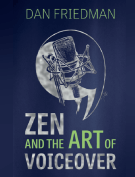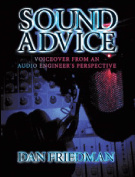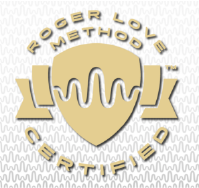 Recently there was a post on the Voice Artists United Facebook page that discussed coaches. The talent (who I do not know) wrote that he was discouraged by some comments that his most recent coach had made. At the time I write this, the post has 48 comments with some very popular names in the industry weighing in.
Recently there was a post on the Voice Artists United Facebook page that discussed coaches. The talent (who I do not know) wrote that he was discouraged by some comments that his most recent coach had made. At the time I write this, the post has 48 comments with some very popular names in the industry weighing in.
Don’t let the title of this article fool you. Getting some VO coaching is critical to your career. At a minimum, good coaches teach breathing, script construction, industry terminology, how to take direction and the mechanics of different styles and deliveries. They should also be teaching microphone technique, basic equipment needs and (hopefully) studio etiquette. Many coaches offer additional instruction on other topics related to voice over such as marketing, basic audio recording and audio editing. Coaches provide encouragement, direction and might even be able to get you a gig or two.
Voice coaches can be many things and their role and importance in your career can change as your career grows and progresses. The most important job of the coach is to be completely honest when evaluating your abilities and offering feedback. This feedback is important. But, at some point, you have to learn to hear “it” for yourself. The truth of the matter is, you have the best coach with you at all times… your ears.
Voice over coaches are indirectly trying to get every student to open their ears and truly listen. Learning to hear the differences and nuances in attitude, style, pacing, inflection, emphasis, amount of smile, etc. is, in my opinion, the real secret to doing voice over well. Almost anyone can learn to do these things with their voice if they are aware of what to do and practice doing it. However, being able to hear the subtle nuances of your delivery is what enables you to stop simply playing with words and allows you to become the communicator that every serious voice talent should work toward becoming.
Coaching deliberately teaches the techniques that get the brain, mouth and voice working together to physically do what needs to be done. But many voice talent fall short by failing to truly engage their ears. This is one reason why so many voiceovers are pieced together line by line by the engineers, whose job it is to use their ears everyday. While this is common in today’s world of fast digital editing and even clients have gotten comfortable working this way, this is not exactly how it is meant to be.
You have two ears and one mouth to remind you to use your ears twice as much. Record, read, playback, listen, adjust accordingly and do it over and over again. Learn to use your ears, use them purposefully and over time you will learn to trust them. You will know immediately what is working and what isn’t. You will learn to fine tune and self-correct. While you may still want to get professional voiceover coaching from time to time, for the most part, you will be your own coach. You will no longer need to feel discouraged by harsh critiques, or pay someone to give them to you. Instead you will get paid to take direction and be proud of the great work you’ve done for your clients.
 I live in what I think (and many will agree) is one of the most beautiful parts of the USA. However, all that lush forest and beautiful foliage brings with it pollen, allergens, and air so thick you can watch it as it blows by. For most people, allergy season is merely a nuisance. For
I live in what I think (and many will agree) is one of the most beautiful parts of the USA. However, all that lush forest and beautiful foliage brings with it pollen, allergens, and air so thick you can watch it as it blows by. For most people, allergy season is merely a nuisance. For  Good communication is a key to success in all relationships. Often miscommunication and misunderstandings between people occur because they simply don’t know how to “speak the same language”. I’m not talking about the difference between English and Chinese. I’m talking about technical audio terms. In the business world, nearly every type of business, has a name for everything they do. The recording and voiceover world is no different.
Good communication is a key to success in all relationships. Often miscommunication and misunderstandings between people occur because they simply don’t know how to “speak the same language”. I’m not talking about the difference between English and Chinese. I’m talking about technical audio terms. In the business world, nearly every type of business, has a name for everything they do. The recording and voiceover world is no different.


